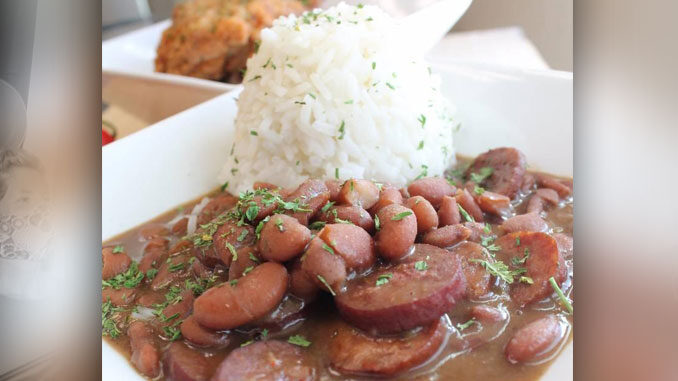
Kira Mercado Data News Weekly Contributor
The holidays are a time when families come together, and food is often the heart and soul of the Black family. Through “Recipes and Remembrance of Fair Dillard, 1869-2019,” the Essence of New Orleans food is preserved through a unique cookbook that executes real history and culture. Written by Zella Palmer, the Director and Chair of the Dillard University’s Ray Charles Program in African American Material Culture, the cookbook is more like a food memoire that exhibits diverse and ethnic dishes created by different figures in African American history.
“So, it’s just a fascinating book and I think it’s a way to teach New Orleans Black history and particularly HBCUs’ history,” Palmer said.
It took Palmer over four years to collect over 150 recipes. The recipes parallel major moments in the city that are connected and shaped by important figures from Dillard. The book is divided into three sections. The first section begins with Dillard’s second President Albert W. Dent and spans the 1940s to the late 1960s with recipes collected from Ernestine Jessie Covington Dent’s Cookbook. Published in the 1950s, Dillard’s first lady Dent collected her own recipes from famous friends like Eleanor Roosevelt, Lena Horne, Marion Anderson, and Mary McLeod Bethune. The book was printed by The Dillard’s Woman’s Club and was in the archives for over 60 years.
The second section revives another long, tucked-away cookbook during Dillard’s International Food Festival that took place under the administration of the university’s fourth President, Dr. Samuel Dubois Cook. During the 1970s and 1980s, Cook wrote about New Orleans, Dillard, the art of cooking, and how it brings people together.
The final section takes readers to the current era of the university under its seventh President, Dr. Walter Kimbrough. Palmer shared that she went around Dillard’s campus collecting recipes from current and local chefs, professors, and even a couple of recipes from current university First Lady Adria Kimbrough herself. There is also a short piece written by Adria Kimbrough, an attorney, on how the role of women and cooking has changed over time.
Palmer said she was inspired by another cookbook author who wrote previous cookbooks about Tuskegee, Hampton, and Howard universities, and she felt like there needed to be one for New Orleans. She wanted readers and food lovers to be able to connect with historical cultures while still being able to put their own twist.
“So, you make it your own, but you’re continuing to cook Creole recipes and, you know, there are tons of recipes in there,” Palmer said. “75-percent of the book is African American, but 25-percent is from all over the world. HBCUs always get a bad rep’ that we’re not inclusive, when we’re the most inclusive place ever,” she said
This cookbook is just not a way to learn how to cook different foods but a way to learn different stories and perspectives from the people who created these dishes.
“Just to be able to taste history and to bring back lost recipes. This made me feel so good,” Palmer said.
One of the main historical individuals Palmer researched on the project was Nellie Murray, an African American woman cook, who was once enslaved. One of Murray’s most famous dishes was Court-bouillon, a seafood soup. She felt like the importance of including Murray’s presence was because the first student class at Dillard University created the school’s newspaper and named it after this dish, but students today don’t know the original history.
“We have to keep their culture alive, especially in New Orleans. And even if students aren’t from New Orleans, they get to learn about this rich culture and then they go back to their perspective worlds and make it their own,” Palmer said.
The cookbook along with the recipes have short introductions and stories about the creators. Palmer hopes that their descendants can recognize some of these authors and be able to give them their full recognition.
“Recipes and Remembrance of Fair Dillard,1869 – 2019” is available to purchase for $35.99 on ULpress.org. A portion of the proceeds from the book supports Dillard’s student scholarship funds.
Zella Palmer is the director and chair of the Dillard University’s Ray Charles program in African American Material Culture. The Louisiana Creole Research Association awarded Palmer with the Founders Award on November 12, 2020 for her research and preservation of Black material culture.
“Recipes of Remembrance” traces the culinary history of New Orleans through recipes that tell the stories of Black life in the city.
Recommended For You.



Be the first to comment